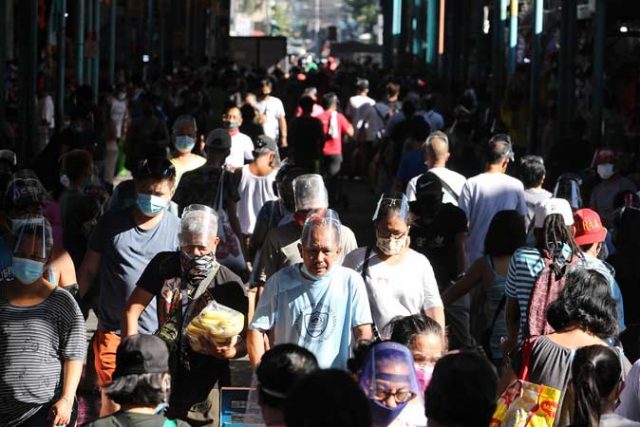THE ONGOING pandemic and its ensuing stay-at-home mandate may have made it more difficult for some to keep a healthy weight — and for a good reason. Maintaining a healthy weight can be challenging, but it can be extra difficult if you’re facing a global health crisis that changed the way you live in a snap of a finger.
If you’ve gained weight during the pandemic, you’re not alone. It’s a worldwide phenomenon. In a study by the Pennington Biomedical Research Center that surveyed close to 8,000 people from 50 different countries and every state in the United States from April to early May 2020, around 27% said they gained weight during the initial lockdown — that’s 10% more than those who said they lost weight.
“Gaining weight is one of the expected impacts of the pandemic,” says Gia Wassmer, MD, Head of the Weight Wellness Center of Makati Medical Center (MakatiMed). “The anxieties and depression caused by the contagious COVID-19, joblessness, and the uncertainties of the times and the loneliness from being away from loved ones can make people focus less on following a healthier lifestyle. Stress eating, losing sleep, having limited access to healthy food, and spending more time inactive can also contribute to weight gain.”
With quarantine measures gradually easing again, getting back to a healthier weight isn’t just possible — it should be a priority. “Being overweight and obese increase your risk of severe illness from COVID-19,” Dr. Wassmer pointed out. “Obesity is linked to impaired immune function and it decreases lung capacity and can make ventilation more difficult. As the body mass index (BMI) increases, so too does the risk of death from COVID-19 and developing chronic illnesses in the future.”
She says that better weight management begins with taking proactive steps. Here are five ways:
Create structure. Instead of letting the day slip by, discipline yourself to wake up, eat, exercise, and sleep at specific hours, says Dr. Wassmer. “This will curb your tendency to sit or lie around indefinitely as well as eat whenever you like,” she adds.
Make healthy choices. “Include whole grains, fruits, vegetables, and lean protein in your meals, and do practice portion control,” says Dr. Wassmer. “Also, ditch the sugary-sweet sodas or milk tea for water, and avoid drinking coffee four to six hours before bedtime since the caffeine may disrupt your sleep.”
Get moving. Dr. Wassmer reminds that an exercise routine doesn’t require fancy equipment or the latest gadgets. Do crunches for your abs and push-ups for your arms and chest. Walk up and down the stairs of your house. Follow aerobic classes on YouTube — or just spring-clean your closet. “There are countless ways to incorporate some form of activity into your day,” she says. “You just have to be creative.” But those who have never exercised before or are coming back from a long lay-off, especially because of some health concerns, should first consult their doctor.
Manage your stress. If the uncertainty of the pandemic is triggering you to stress-eat, deal with your fears by reaching out to friends, writing down your thoughts in a journal, meditating, or praying. “Expressing your anxiety, whether through the written or spoken word, somehow eases the burden you carry in your mind,” Dr. Wassmer points out. “It also allows you to hear or read your thoughts, so you know whether your fears are rational or unfounded.”
Don’t be so hard on yourself. Stop beating yourself up for gaining weight during the pandemic. Instead, aim for small yet doable goals — not overly ambitious ones, lest you want to add to your anxiety. “Crash diets and strenuous exercises are knee-jerk reactions to weight management,” says Dr. Wassmer. “Losing one to two pounds a week is a reasonable — healthy and sustainable — way to do so.”
For more information on losing weight safely, contact MakatiMed On-Call at 8888-8999, e-mail mmc@makatimed.net.ph, or visit www.makatimed.net.ph.













